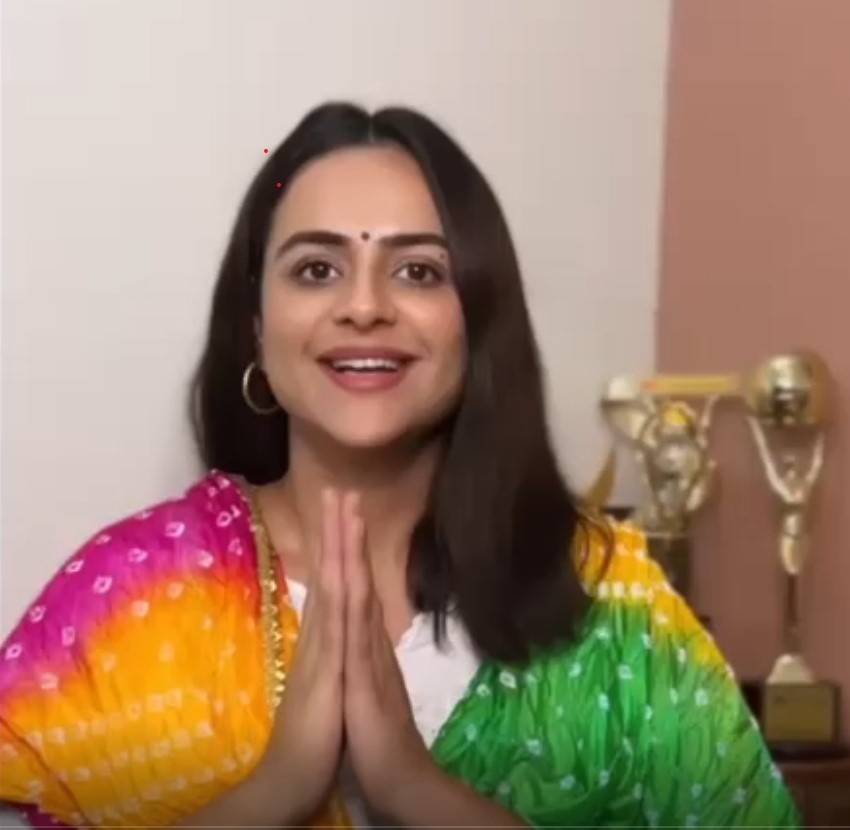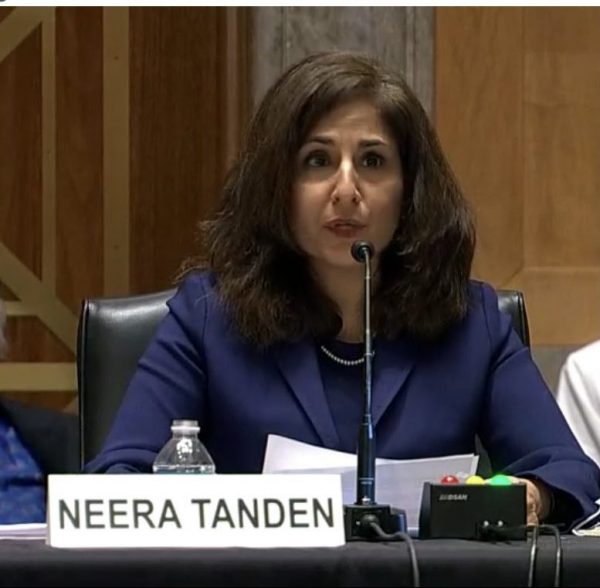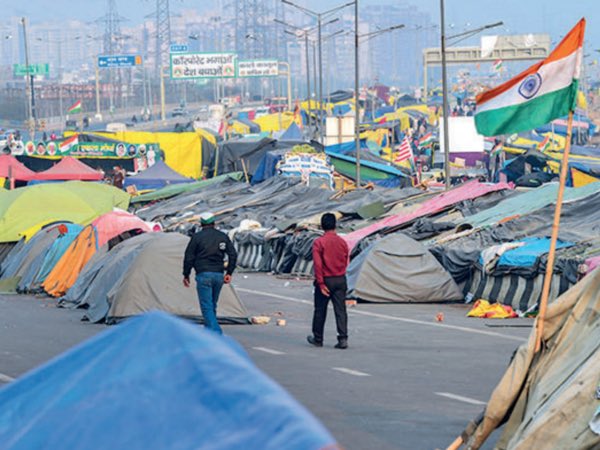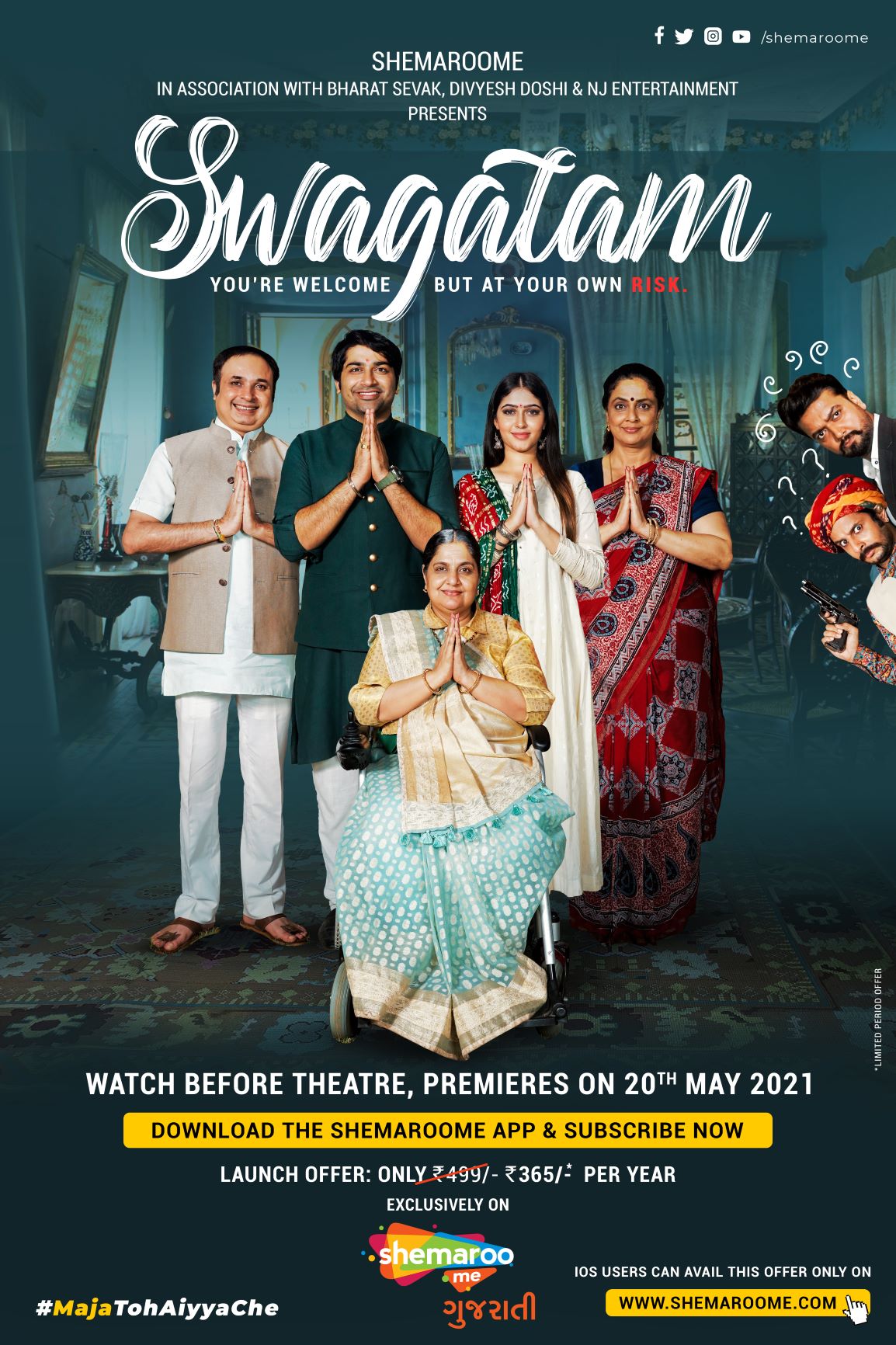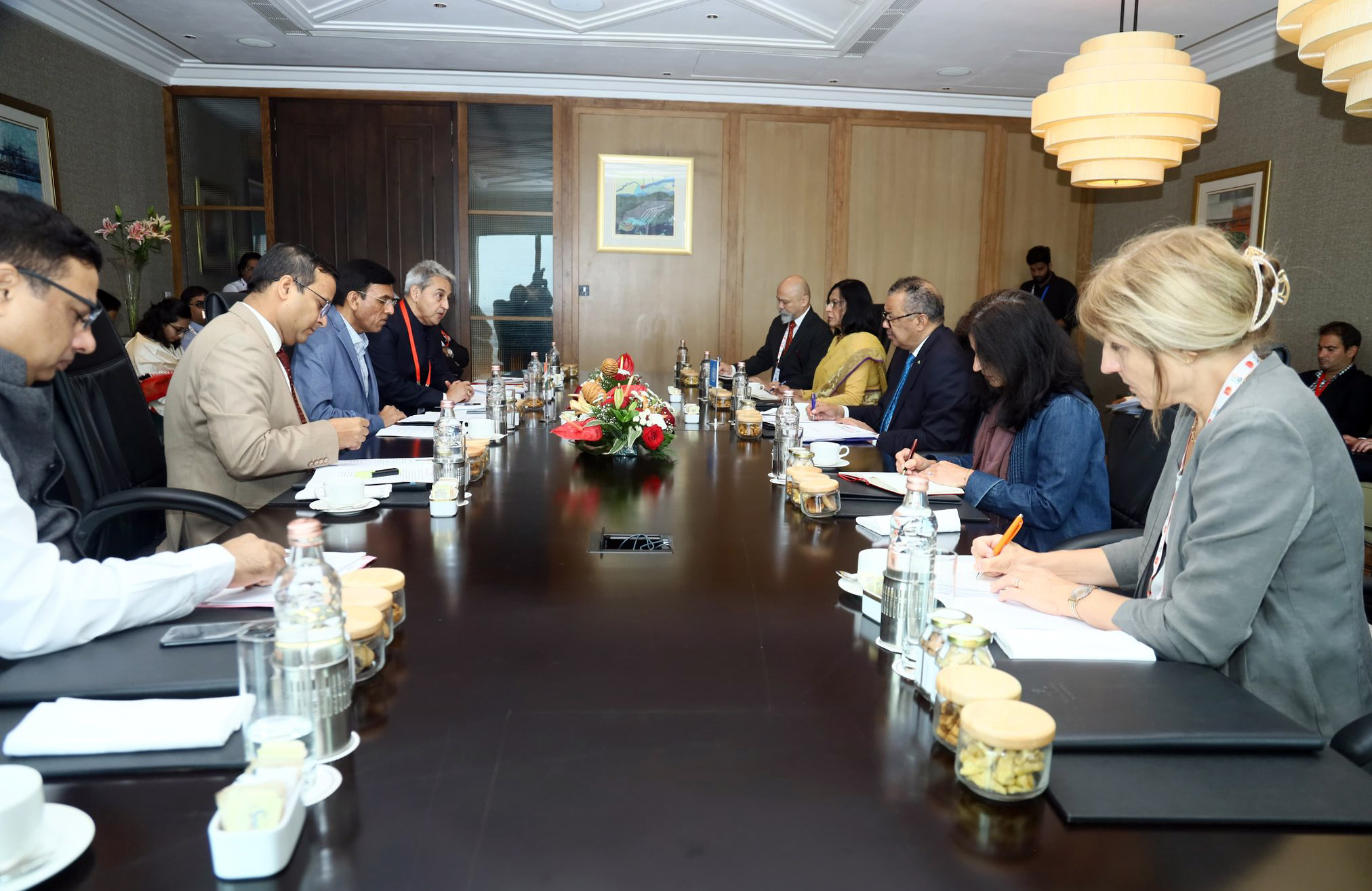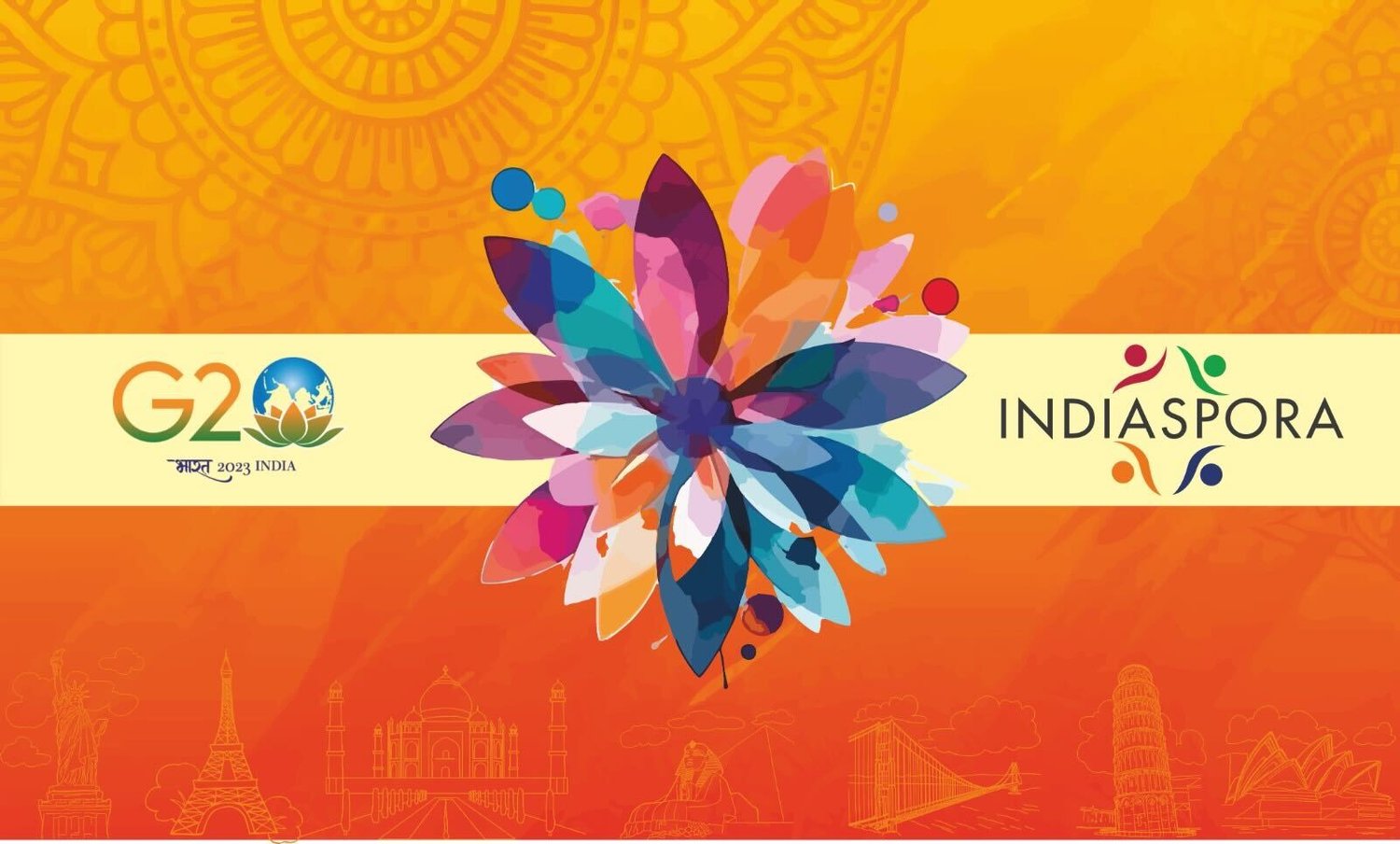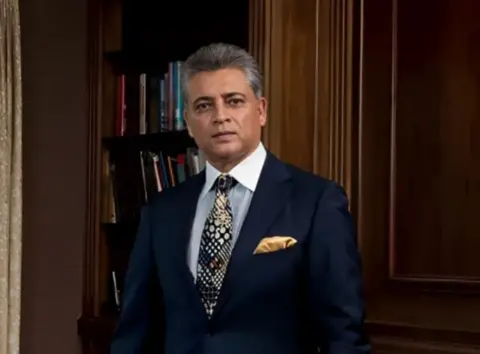By leading her party to a third consecutive victory, Mamata Banerjee has established herself as the undisputed leader of West Bengal. By defeating the Narendra Modi-Amit Shah machinery, she is now a national leader of big stature
Our Bureau
Kolkata/New Delhi
This was the mother of all elections. After a long time in Indian politics, a state election generated so much heat and dust as the West Bengal election in 2021. The state witnessed a fierce contest between the ruling TMC and BJP across eight phases. The Samyukta Morcha comprising the Congress, Left parties and ISF has also tried to put up a strong fight. The BJP has made a concerted attempt to dislodge the TMC.
On May 2, the day of counting, as the day progressed, the trend suggests the victory of the ruling Trinamool Congress (TMC) in West Bengal assembly. The Bharatiya Janata Party (BJP) was in second place.
It is a big win for Mamata Banerjee. It is a big defeat for Prime Minister Narendra Modi who personally led the BJP campaign in the state.
This is a victory for Bengal, said West Bengal Chief Minister Mamata Banerjee after winning from the Nandigram constituency on Sunday. “I would like to thank everyone. Please adhere to COVID-appropriate behaviour. I request all to not take out victory processions. I urge everyone to go back to their homes now. Our first priority is to control the COVID outbreak. This is the victory of Bengal. Only Bengal can,” Mamata told TMC supporters outside her Kalighat residence in Kolkata. Mamata Banerjee has won from the Nandigram constituency by a narrow margin of 1,200 votes. She also walked on her feet instead of using a wheelchair that happened to her companion since March after sustaining injuries during campaigning in Nandigram.
Striving to prove that “Bangla nijer meyekei chaye” (Bengal wants its own daughter), she continues her stride in the political spectrum of the nation that began in 1975 making the headlines by dancing on the car of the most influential leaders of that time Jayaprakash Narayan as a mark of protest.
Forty-six years have passed since then; her fighting spirit continue to shine in Indian politics. She is ‘Nation’s Didi’ Mamata Banerjee. She became the chief minister of West Bengal in 2011 by ending the 34-year-long CPI(M) regime, one of the longest-serving elected governments in the world. Now after ruling the state for two successive terms, the game of thrown of 2021 was not less than a do-or-die situation for her.
Mamata’s poll campaign this time got a new dimension with a wheelchair after she suffered an injury in March, 2021 while campaigning in Nandigram.
It is worth mentioning that the West Bengal Chief Minister spared no dais to launch scathing attacks on Prime Minister Modi. However, the Modi-Mamata battle was quite visible even before the 2019 Lok Sabha elections. She played an instrumental role in bringing together all opposition parties against the Centre prior to the 2019 general elections.
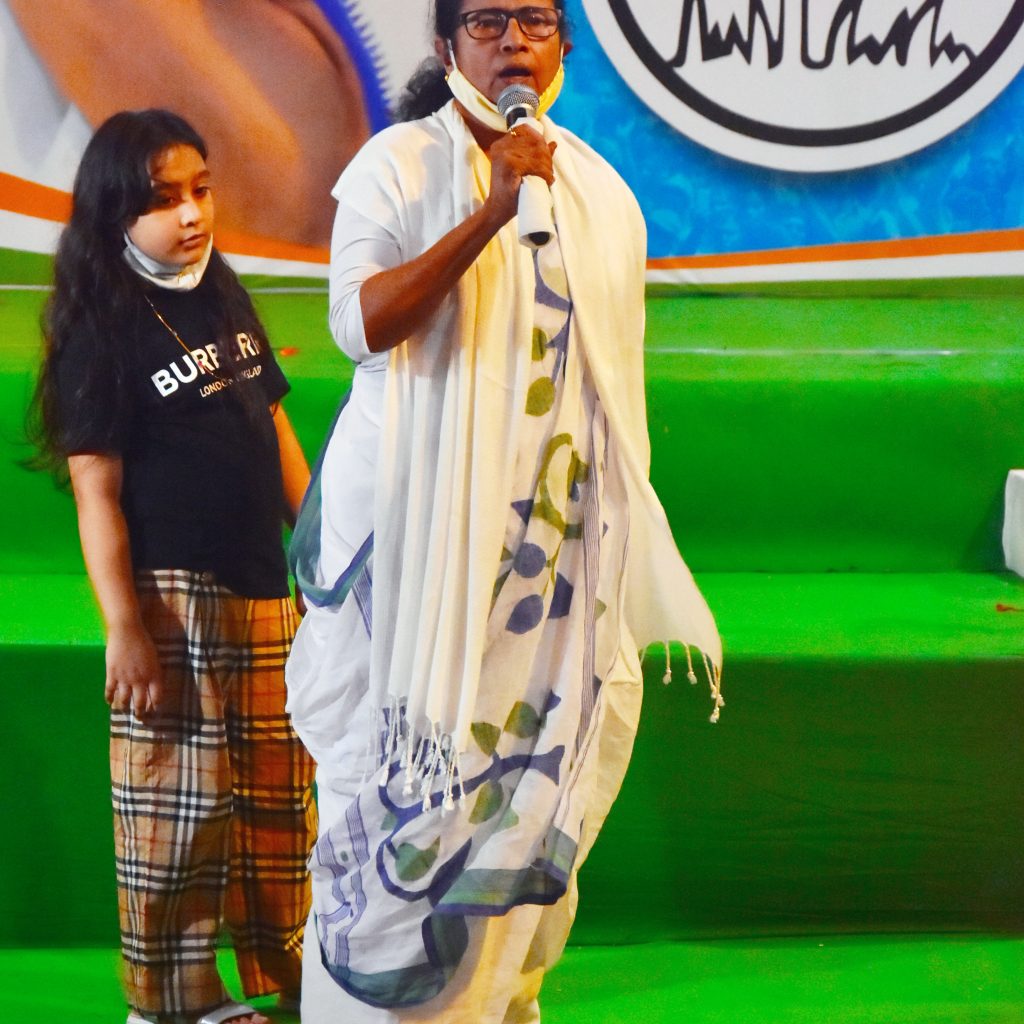
West Bengal CM and AITC supremo Mamata Banerjee addresses a press conference after winning the state legislative assembly elections, in Kolkata on Sunday. (ANI Photo)
Mamata Banerjee started her political career as a Youth Congress worker in the 1970s. She quickly rose the ranks and became the general secretary of Mahila Congress and later All India Youth Congress. In 1984 she was elected as a member of parliament in the 8th Lok Sabha becoming one of India’s youngest parliamentarians. She founded the All India Trinamool Congress in 1997 after a disagreement with Congress.
Hailing from a lower-middle-class family, Mamata Banerjee worked as a milk booth vendor to battle poverty. Her father passed away due to the lack of treatment when she was just 17. The fighter in her never let the barriers dominate her. She continued her education and earned a Bachelor’s degree in History, a Master’s degree in Islamic History and degrees in Education and Law from the University of Calcutta. She also worked as a stenographer and a private tutor before joining full-time politics.
Another disposition of Mamata Banerjee is her minimalist lifestyle. Despite being the Chief Minister, she still lives in her ancestral terracotta-tiled roof house at Kolkata’s Harish Chatterjee Street. White cotton sarees having mono-colour borders and slippers are all that define the fashion statement of Mamata Banerjee.
As the ‘Khela’ of power in West Bengal ended with the completion of vibrant eight-phased state assembly elections on Thursday, all eyes are on the counting of votes that will take place on Sunday.
Following Trinamool Congress’ thumping win in assembly elections in West Bengal, Congress leader Kapil Sibal on Monday said “arrogance, might, money power and using Jai Shri Ram for politics” lost the polls in the state.
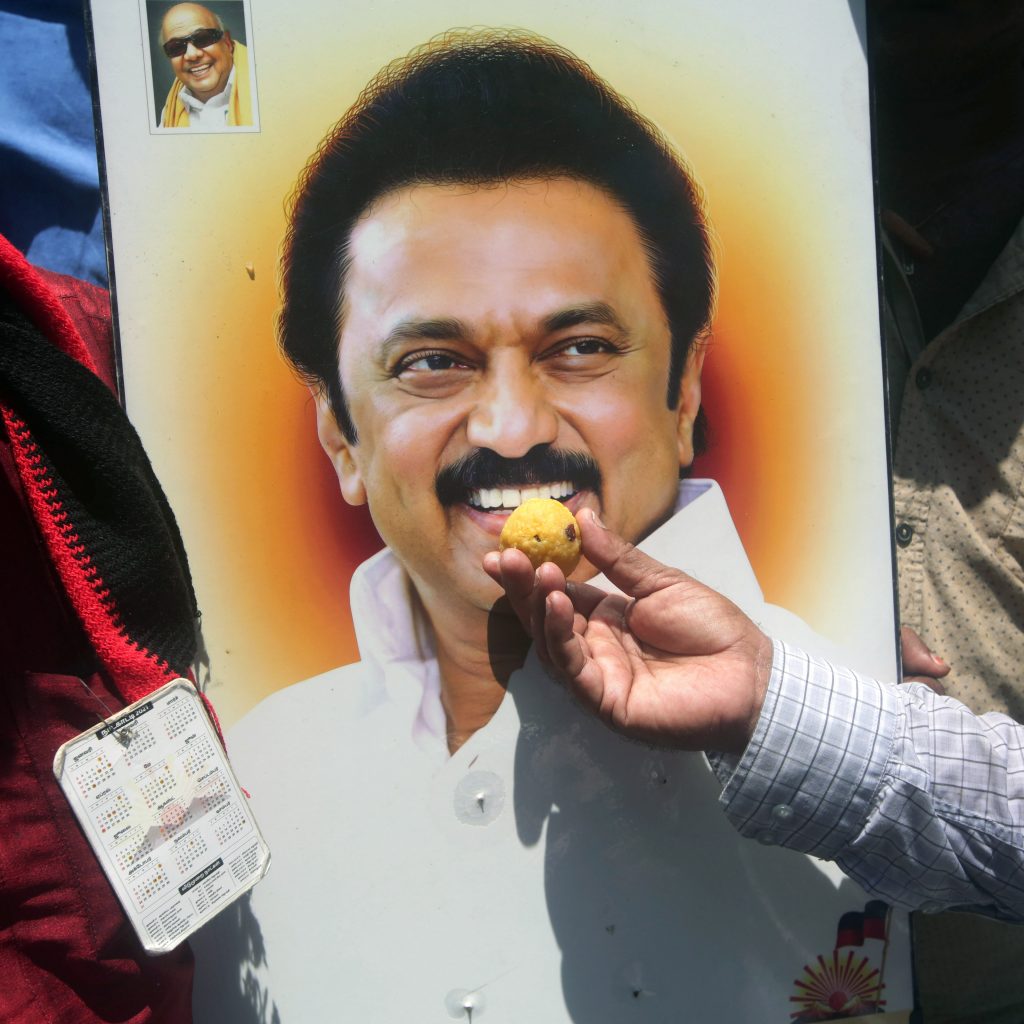
DMK party workers feed sweets to MK Stalin’s posters in Chennai on Sunday. (ANI Photo) 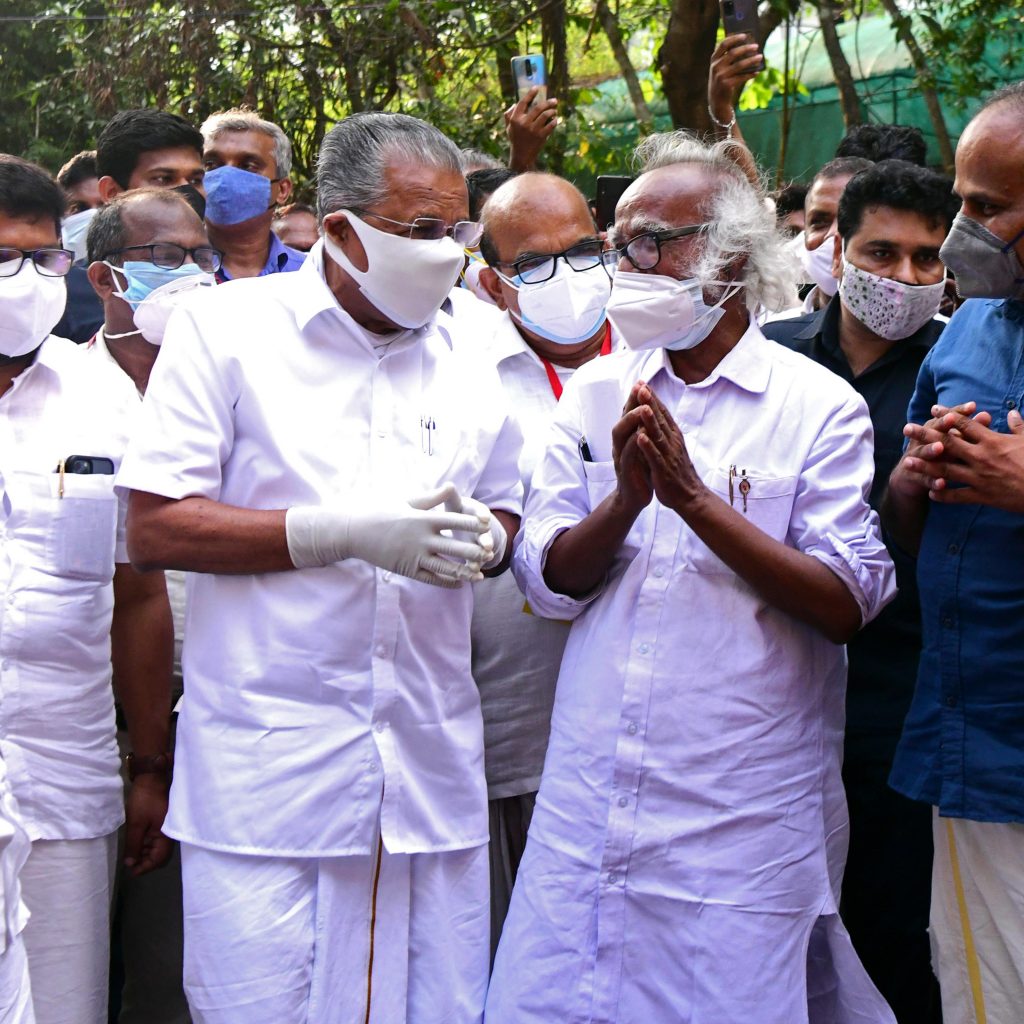
Chief Minister of Kerala Pinarayi Vijayan interacts with winning LDF candidates on Kerala on Sunday. (ANI Photo)
Tamil Nadu: The return of a son
The DMK alliance’s victory by a margin of roughly 80 seats wasn’t a surprise to many including discerning observers in the AIADMK. Edappadi K Palaniswami’s ratings as a chief minister were high, but his image makeover from that of an accidental CM four years ago to a survivor a year later to a performer in the past year was just not enough to retain power given AIADMK’s uninterrupted run for 10 years.
The TN result shows anti-incumbency in the state is not always a roaring wave, it could be a silent undercurrent. AIADMK’s apparent deference to BJP added swirls to the current while DMK president M K Stalin rode expectations that outweighed allegations of dynasty politics.
Both sides broadly played to their strengths. DMK’s tally was boosted by its performance in urban segments where it won 40 of its 156 seats while AIADMK had a better score in the rural parts, which elected 61 of its 78 MLAs. In seats with a minority electorate of over 20%, AIADMK surprisingly did not concede much ground despite the BJP being its alliance partner. It won 7 out of 27 such constituencies while the rest went to the DMK.
All in all, the DMK alliance’s efforts to paint AIADMK as one taking orders from the ‘outsider’ BJP paid dividends. On the other hand, AIADMK’s charges of the DMK being a family-controlled party did not matter, what with Stalin’s son Udhayanidhi winning his electoral debut from Thousand Lights in Chennai with a record margin.
AIADMK, which forged an uneasy peace among factions following J Jayalalithaa’s death in December 2016, will now face another challenge if her former aide V K Sasikala tries to fish in troubled waters.
For Modi-Shah, the result is a double blow. Besides the failure to get a strong foothold in the heart of the South, it is also the loss of a friendly, even pliable, state government.
Congress has fared somewhat better, winning 18 seats in DMK’s company. Having contested 25 this time (a climb down from 41 in 2016), the party remains a minor ally. The 2021 assembly election results have thus cemented Tamil Nadu’s image as a Dravidian fort impregnable for national parties.
Kerala: Left is right choice
In a historic victory, the Communist Party of India (M)-led Left Democratic Front (LDF) retained power in Kerala by winning 99 seats against 41 seats of Congress-led United Democratic Front (UDF) in the Assembly polls.
In the 140-member Kerala Assembly, Bharatiya Janata Party (BJP)-led the National Democratic Front (NDA) failed to hold on to the single-seat it won of Nemom in Thiruvananthapuram in 2016 and drew a blank this time. In LDF, CPI (M) led from the front winning 68 seats, including the independent candidates backed by the party. The closest ally CPI won 17 seats, while the new entrant to the Left fold, Kerala Congress (M) managed to win 5 seats out of the 12 seats it contested. Janata Dal (Secular) and Nationalist Congress Party (NCP) won 2 seats each, and the Loktantrik Janta Dal (LJD) won just one seat out of three seats it contested. Kerala Congress (B) retained its sitting seat, while Indian National League (INL) and Congress (Secular) won one seat each.
The main opposition Congress was able to win just 21 seats out of the 91 seats it contested. The UDF partner Indian Union Muslim League (IUML) also put a dismal performance winning just 15 seats out of the 27 seats it contested. When Kerala Congress won 2 seats, the Kerala Congress (Jacob), the National Secular Conference and the Revolutionary Marxist Party of India (RMP) won one seat each.
When the left under Pinarayi Vijayan routed the Opposition both Congress and BJP suffered a huge setback. In the BJP, senior leaders like Kummanam Rajasekharan, state president K Surendran who contested from two seats, Sobha Surendran and Metroman E Sreedharan faced defeats.
Assam: A consolation for BJP
The Bharatiya Janata Party (BJP)-led National Democratic Alliance secured a comfortable majority in Assam Assembly elections paving its way to form the government in the state winning 75 seats of the total 126 constituencies.
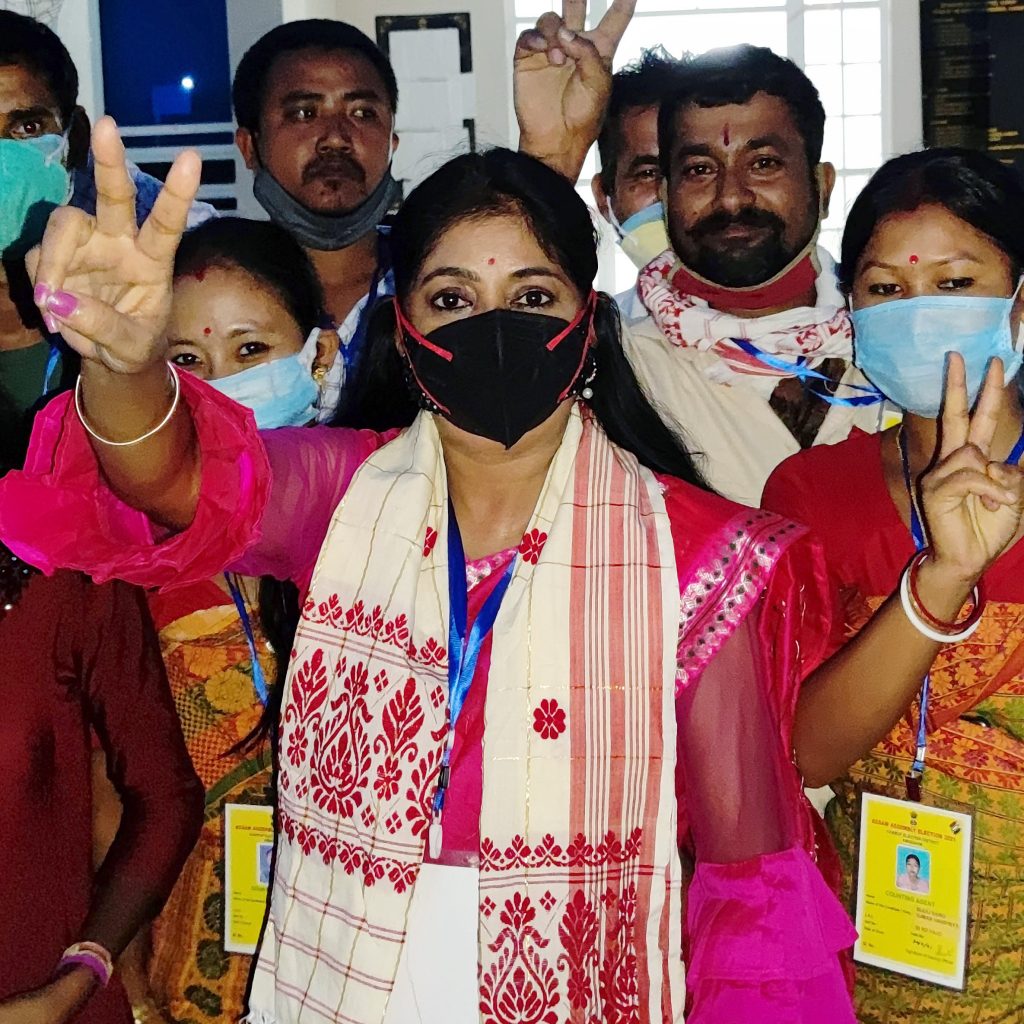
BJP candidate Suman Haripriya flashes victory sign after her win in the state assembly elections, at Amingaon in Kamrup
District on Sunday. (ANI Photo)
As per the Election Commission, the BJP secured 60 seats, about 33.2 per cent of the total vote share, while allies Asom Gana Parishad (AGP) and United People’s Party, Liberal (UPPL) bagged nine and six seats respectively. The counting of votes, which began at 8 am on Sunday, ended at around 5:40 am on Monday.
Congress managed to secure 29 seats (29.7 per cent vote share) while its ‘Mahajoth’ allies AIUDF won 16, and Bodoland People’s Front bagged four. The Communist Party of India (Marxist) secured one seat.
Incumbent Chief Minister Sarbananda Sonowal won the Majuli constituency while Health Minister Himanta Biswa Sarma bagged the Jalukbari seat with a margin of over one lakh votes.
Sarma said a decision on the next Chief Minister will be taken by the BJP Parliamentary Board.
Jailed activist Akhil Gogoi also secured a victory won from the Sibsagar seat.
Addressing a press conference, Congress general secretary Randeep Singh Surjewala conceded defeat and promised that the party would continue to play the role of an effective opposition in the state.
Although the BJP has secured a win, it is unclear if Sonowal will continue as the Chief Minister.
Speaking about the next Chief Minister, Union Minister Jitendra Singh said, “The choice of leader of a legislative party is something which is decided by democratic means. Once results are notified and assembly is constituted, a due decision would be taken with cognizance of highest opulence of our party.”
Prashant Kishore: The Magic Touch
With the Trinamool Congress (TMC) and the Dravida Munnetra Kazhagam (DMK) set to form the next government in West Bengal and Tamil Nadu respectively, the spotlight is on the political strategist who worked behind the scenes to ensure these election victories, Prashant Kishor.
Kishor once again proved his mettle in the assembly elections of these two states. The game of thrones in West Bengal has undoubtedly not been a cakewalk for Chief Minister Mamata Banerjee. Even, Kishor himself had admitted on various platforms that there was an air of anti-incumbency against the ruling TMC government in West Bengal. Plus, there was the aggressive campaigning of the BJP involving the top leadership including Prime Minister Narendra Modi. However, Kishor’s micro-level management and vivacious campaign strategy paved the way for Mamata a third term in West Bengal. Worth mentioning, Kishor had said on many platforms that he would quit the space if BJP wins more than 100 seats in West Bengal assembly polls. Interestingly, the results appeared to be as per his predictions.
In Tamil Nadu, Kishor facilitated DMK chief MK Stalin to dislodge the AIADMK ruled government. Here also, Kishor had to steer the victory of Stalin by surpassing the superior electioneering of the BJP as it is the alliance partner of AIADMK.
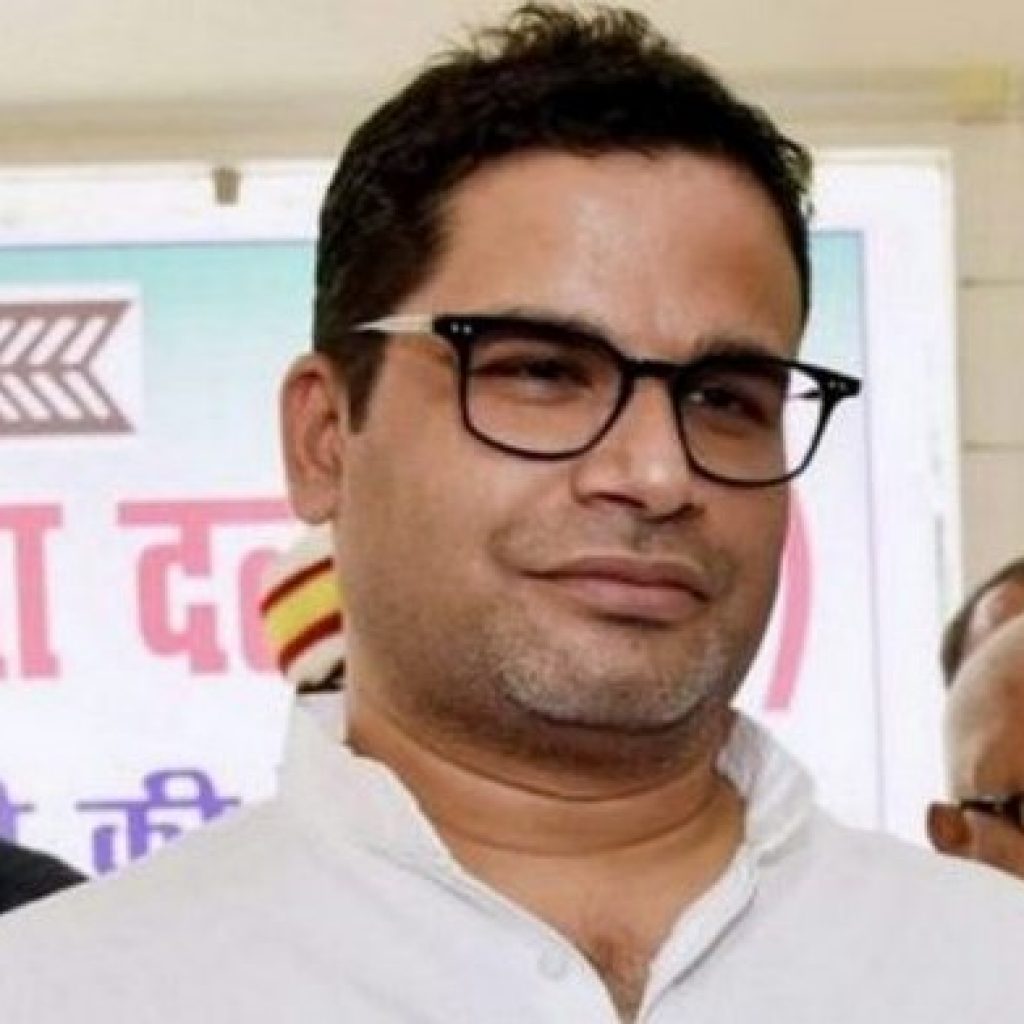
As a political strategist, Kishor worked with many parties to win the elections. Notably, he played an instrumental role in strategizing BJP’s campaign in the 2014 Lok Sabha elections that lodged Narendra Modi as the Prime minister of the country.
He helped Janata Dal (United) chief Nitish Kumar to win the Assembly polls in 2015. Following this, Kumar appointed Kishor as the vice president of JD-U. However, Kishor was expelled from JD-U in January 2020 over his disagreement with the party on the issue of the National Register of Citizens (NRC).
Recently he has been appointed as the Principal Advisor by Punjab Chief Minister Captain Amarinder Singh ahead of the 2022 Assembly polls in the state.


















